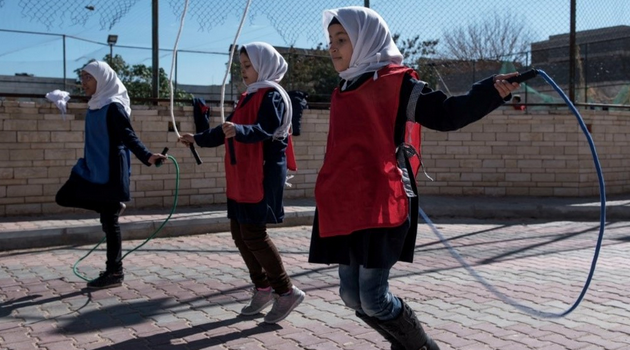During the first quarter of 2017, UNCIEF in partnership with the National Centre for Disease Control and the Ministry of Education conducted an in-depth assessment of the quality of water and sanitation facilities in 140 schools in west, east and south of Libya.
The study revealed insufficient and poor quality of drinking water and sanitation facilities in 54 per cent of the assessed schools, which means that girls and boys are at risk of serious health problems particularly water borne diseases.
Dr Badereddin Annajar, General Director of the National Center of Disease Control, said:
“As a result of this important partnership, UNICEF and National Center of Disease Control has sufficient evidence for understanding the scale of the damage of sanitation facilities and quality of water in Libyan schools.
"The findings provided a sound knowledge base for the relevant stakeholders to prioritize funds for improving the water and sanitation facilities in schools by allocating sufficient budgets and priorities these interventions in schools.”
Dr Ghassan Khalil, UNCIEF Special Representative in Libya, added:
“UNICEF urges all parties in Libya to collaborate together to address this critical issue and immediately take the required decisive steps to improve water quality, water and sanitation facilities in schools.
“In 2016, UNICEF and its partner has improved the water and sanitation facilities in 20 schools in Sebha and Ubari and is working on 32 schools across Libya in 2017.”
UNICEF and its partners will use the results of this study to spearhead its water and sanitation programmes in Libya. Additionally, the findings will be used as a base to leverage essential funds to support children to continue their education in conducive and healthy school environment.
This study was only possible with the generous contributions from the German Government.
(Source: UNSMIL)





